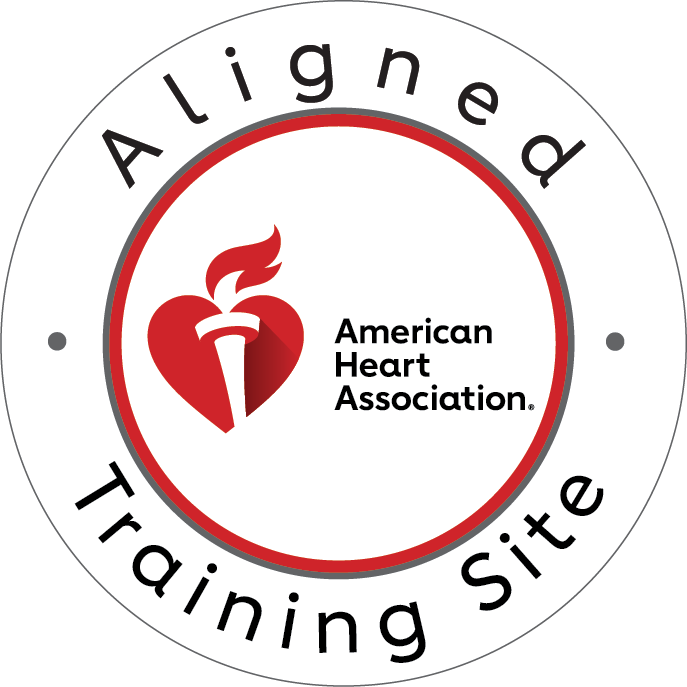Mastering CPR in Specialized Healthcare Settings
In the fast-paced and critical world of healthcare, the ability to respond effectively to life-threatening emergencies can mean the difference between life and death. Cardiopulmonary resuscitation (CPR) is a fundamental skill that every healthcare professional must master, as it serves as a vital lifeline in cardiac arrest and respiratory distress situations. However, the unique challenges and scenarios faced by healthcare workers demand specialized training tailored to their specific needs and work environments.
Healthcare professionals encounter a wide range of scenarios that require immediate and precise action. From emergency rooms and intensive care units to nursing homes and ambulatory care facilities, the potential for cardiac arrest, respiratory failure, and other life-threatening situations is ever-present. These high-stakes environments necessitate a comprehensive understanding of advanced resuscitation techniques, medication administration, and specialized equipment operation.
Moreover, healthcare settings often present unique challenges that require healthcare providers to adapt their CPR skills accordingly. Patient factors such as age, underlying medical conditions, and comorbidities can significantly impact the approach to resuscitation efforts. Additionally, the presence of specialized equipment, such as defibrillators, airway management devices, and intravenous lines, demands a thorough understanding of their proper use and integration into the resuscitation process.
Recognizing the critical importance of healthcare-specific CPR training, organizations like the American Heart Association (AHA) have developed specialized courses tailored to the needs of healthcare professionals. These courses not only cover the fundamental aspects of CPR but also delve into advanced techniques, specialized equipment use, and scenario-based training that replicates the real-world challenges faced in healthcare settings.
By mastering healthcare-specific CPR training solutions, healthcare professionals can enhance their ability to respond effectively in emergencies, ultimately improving patient outcomes and saving lives. This article will explore the various training solutions available, their unique features, and the benefits they offer to healthcare professionals across diverse settings.
Healthcare-Specific CPR Training Solutions
To address the unique demands of the healthcare environment, various specialized CPR training solutions have been developed. These courses go beyond the basic CPR training and equip healthcare professionals with the advanced knowledge and skills necessary to handle complex medical emergencies effectively.
A. BLS for Healthcare Providers
- Overview of the course: The Basic Life Support (BLS) for Healthcare Providers course is designed specifically for healthcare professionals working in clinical settings. It provides comprehensive training in cardiopulmonary resuscitation, automated external defibrillator (AED) use, and other life-saving techniques.
- Key topics covered: In addition to adult CPR, the course covers child and infant CPR, as well as the management of choking situations. Participants learn how to recognize and respond to various life-threatening emergencies, such as cardiac arrest, respiratory distress, and airway obstructions. The course emphasizes the importance of high-quality CPR, including proper chest compression techniques and ventilation methods.
- Importance for healthcare professionals: Healthcare providers often encounter patients in critical conditions, and the ability to initiate prompt and effective BLS can significantly improve patient outcomes. This course equips them with the necessary skills to respond appropriately during medical emergencies, potentially saving lives.
B. Advanced Cardiovascular Life Support (ACLS)
- Definition and target audience: ACLS is an advanced course designed for healthcare professionals who may need to respond to cardiovascular emergencies, such as cardiac arrest, acute coronary syndromes, and stroke. It is particularly relevant for physicians, nurses, paramedics, and other healthcare providers working in critical care settings.
- Course content: The ACLS course covers a wide range of topics, including the management of cardiac arrest, recognition and treatment of life-threatening arrhythmias, and the administration of advanced cardiac life support medications. Participants learn how to interpret electrocardiograms (ECGs) and apply advanced airway management techniques.
- Benefits for healthcare professionals in critical care settings: ACLS training equips healthcare professionals with the knowledge and skills necessary to manage complex cardiovascular emergencies effectively. It enhances their ability to recognize and respond to life-threatening conditions, administer appropriate treatments, and coordinate advanced resuscitation efforts, ultimately improving patient outcomes in critical care settings.
C. Pediatric Advanced Life Support (PALS)
- Purpose and relevance: The PALS course is specifically designed for healthcare professionals who work with pediatric patients, including those in emergency departments, intensive care units, and other critical care settings. It focuses on the unique needs and challenges associated with providing advanced life support to infants and children.
- Course curriculum: The PALS curriculum covers a wide range of topics related to pediatric emergencies and resuscitation techniques. Participants learn how to recognize and manage respiratory distress, shock, and cardiopulmonary arrest in children. The course also covers the appropriate use of specialized equipment, such as pediatric defibrillators and airway management devices, as well as the administration of medications tailored to pediatric dosages.
- Significance for healthcare providers working with pediatric patients: Children often present unique challenges during medical emergencies due to their smaller size, developmental stages, and physiological differences. PALS training equips healthcare professionals with the specialized knowledge and skills necessary to respond effectively in these situations, ultimately improving outcomes for critically ill or injured children.
D. CPR and First Aid
- Importance of first aid knowledge in healthcare settings: While CPR is a crucial component of emergency response, healthcare professionals also need to be proficient in providing basic first aid. Situations such as wounds, burns, fractures, and environmental emergencies may arise in various healthcare settings, and the ability to provide immediate and appropriate first aid can greatly impact patient outcomes.
- Course content: CPR and First Aid courses cover a wide range of topics, including wound care, bleeding control, immobilization techniques, burn management, and environmental emergencies such as heat and cold-related illnesses. Participants learn how to assess and prioritize different types of injuries, as well as how to provide appropriate treatment until advanced medical care becomes available.
- Benefits for healthcare professionals in various settings: First aid knowledge is valuable for healthcare professionals across all settings, from hospitals and clinics to long-term care facilities and home healthcare services. By acquiring these skills, healthcare providers can better respond to emergencies, stabilize patients, and potentially prevent further complications until more advanced medical care can be provided.
CPR Columbus: A Trusted Provider
For healthcare professionals in the Columbus area, CPR Columbus stands out as a trusted provider of high-quality, healthcare-specific CPR training solutions. As an American Heart Association (AHA) training site, CPR Columbus offers a wide range of courses designed to meet the unique needs of healthcare providers.
- Overview of CPR Columbus: CPR Columbus is dedicated to providing exceptional CPR and first aid training to individuals and organizations in the Columbus community. With a team of experienced and certified instructors, they strive to create a supportive and engaging learning environment that fosters confidence and competence in emergency response skills.
- Unique approach to training: (stress-free, hands-on) One of the defining aspects of CPR Columbus’s training approach is its commitment to creating a stress-free and hands-on learning experience. They understand that healthcare professionals often face high-pressure situations, and their training aims to simulate real-world scenarios in a controlled and supportive environment. By emphasizing practical, hands-on experiences, participants can develop muscle memory and build confidence in their ability to respond effectively during emergencies.
- Experienced instructors and high-quality training materials: CPR Columbus takes pride in its team of highly qualified and experienced instructors, who bring a wealth of knowledge and real-world experience to the classroom. These instructors are not only certified by the American Heart Association but also possess extensive backgrounds in healthcare, emergency response, and education. They are dedicated to providing personalized guidance and ensuring that each participant fully grasps the concepts and techniques being taught.
In addition to their exceptional instructors, CPR Columbus invests in high-quality training materials and equipment, ensuring that participants have access to the latest resources and technology. This commitment to staying up-to-date with industry standards and best practices guarantees that the training received at CPR Columbus is relevant and aligns with the most current guidelines and recommendations.
Choosing the Right Training Solution
With a variety of healthcare-specific CPR training solutions available, it’s crucial for healthcare professionals and organizations to carefully assess their needs and select the most appropriate courses. Several factors should be considered when making this decision.
- Assessing individual and organizational needs: The first step in choosing the right training solution is to conduct a thorough assessment of individual and organizational needs. Healthcare professionals should evaluate their specific roles, responsibilities, and the types of emergencies they are likely to encounter in their workplace. Organizations, on the other hand, should consider the overall scope of services they provide, the patient demographics they serve, and the potential risks or emergencies that may arise within their facilities.
- Factors to consider:
- Workplace setting: The healthcare setting in which an individual or organization operates plays a significant role in determining the appropriate training solution. For example, professionals working in emergency departments or intensive care units may require advanced training, such as ACLS or PALS, while those in outpatient clinics or long-term care facilities may benefit more from BLS for Healthcare Providers and First Aid courses.
- Patient demographics: The age and specific needs of the patient population served by a healthcare facility should also be taken into account. Facilities that primarily care for pediatric patients will likely prioritize PALS training, while those serving a predominantly adult population may focus more on ACLS or BLS courses.
- Existing staff competencies: It’s essential to evaluate the current competencies and training levels of healthcare staff. Organizations may need to provide initial certification courses for new employees or recertification courses for those whose credentials are expiring.
- Importance of regular recertification and ongoing training: Maintaining up-to-date CPR and emergency response skills is crucial for healthcare professionals. Most certifications have expiration dates, typically ranging from one to two years, after which recertification is required. Regular recertification not only ensures that knowledge and skills remain current but also provides an opportunity to review and reinforce essential techniques and incorporate any updates or changes to guidelines and best practices.
Additionally, ongoing training and refresher courses can help healthcare professionals maintain a high level of preparedness and confidence in their emergency response abilities. Simulation-based training, scenario-based drills, and continuing education opportunities can further enhance healthcare providers’ ability to respond effectively in real-life emergencies.
Conclusion
In the ever-evolving landscape of healthcare, the ability to respond swiftly and effectively to life-threatening emergencies is a non-negotiable skill. Mastering CPR and other emergency response techniques through specialized training solutions is not only a professional obligation but also a vital step in safeguarding the well-being of patients and potentially saving lives.
By enrolling in the healthcare-specific CPR training programs offered by CPR Columbus, healthcare professionals can acquire the knowledge, skills, and confidence necessary to navigate complex medical emergencies with precision and proficiency. Whether it’s BLS for Healthcare Providers, ACLS, PALS, or CPR and First Aid, these courses equip individuals with the tools to make a meaningful difference in their communities.
For healthcare professionals and organizations in the Columbus area, CPR Columbus stands as a trusted provider of exceptional CPR certification and training solutions. With its commitment to stress-free, hands-on learning environments, experienced instructors, and adherence to the latest industry standards, CPR Columbus offers a comprehensive and engaging experience tailored to the unique needs of the healthcare community.
Don’t hesitate to take action and invest in your professional development by enrolling in CPR certification Columbus courses at CPR Columbus. Prioritize patient safety, enhance your emergency response skills, and be prepared to make a lasting impact when it matters most.
Remember, the path to becoming a life-saving healthcare professional starts with seeking out reputable CPR certification Columbus providers like CPR Columbus. Take the first step today and commit to a journey of continuous learning and preparedness in the face of medical emergencies.




